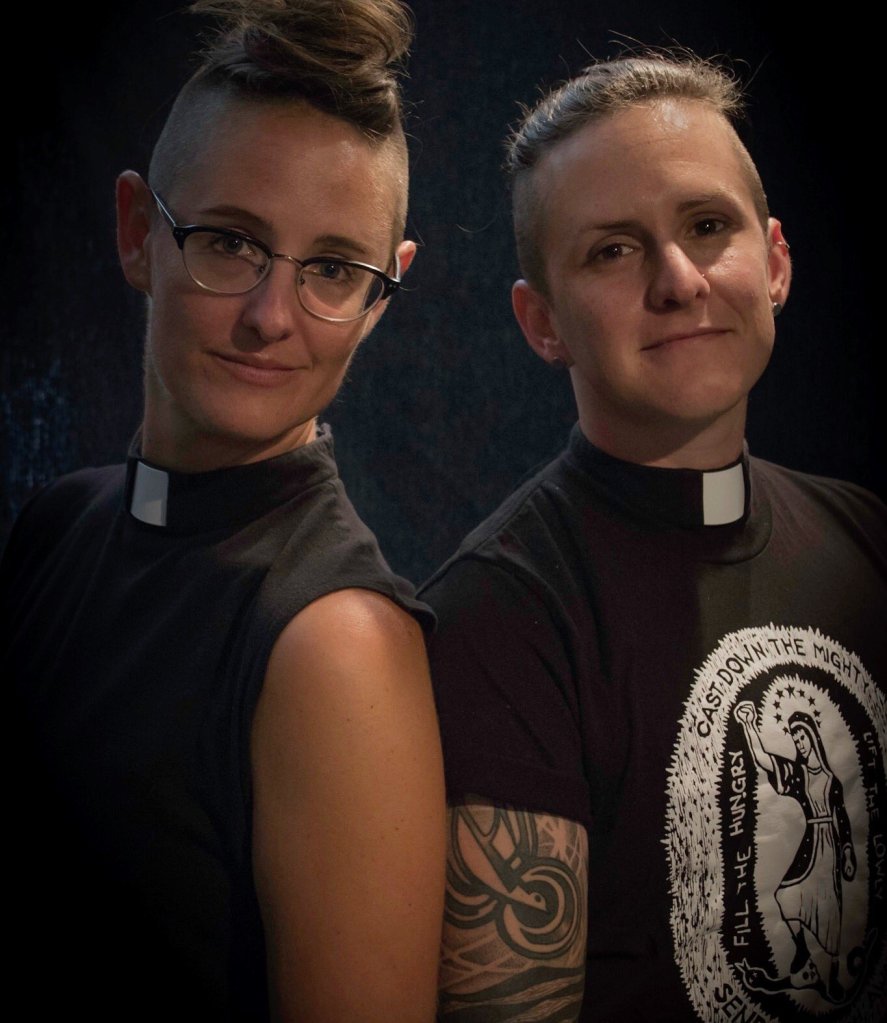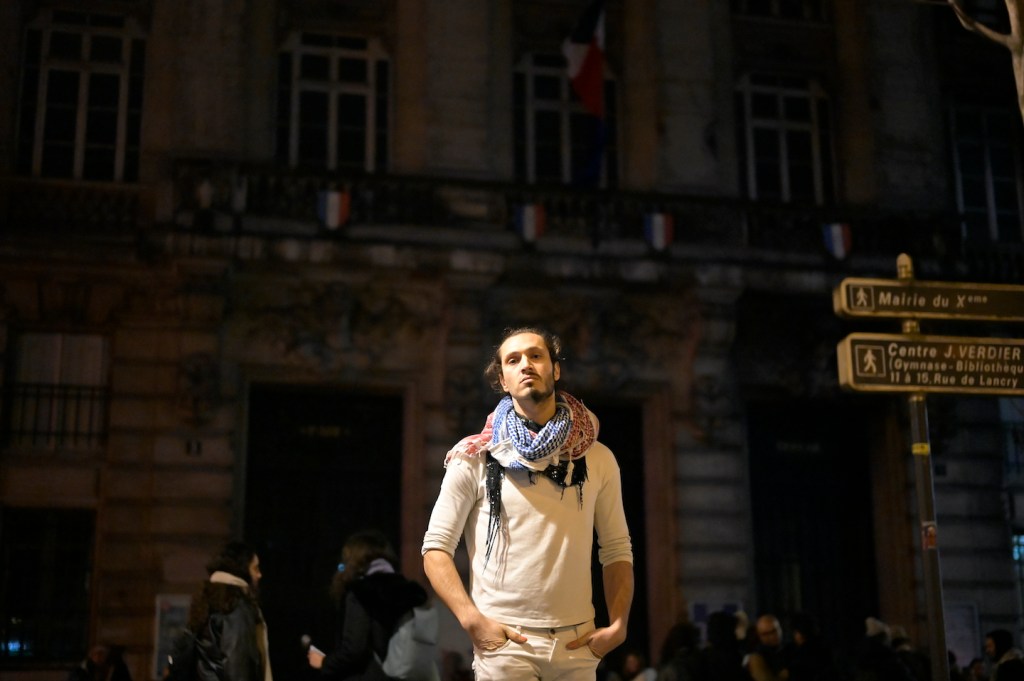Reverend M. Barclay, who is ordained within the United Methodist Church, admits there’s not a lot of work out there for gender non-binary trans queer pastors. That’s why, after feeling a sense of professional dissatisfaction earlier this year, they sat down and asked themselves that all-important question: “What do I really want to do with my life?” (Honestly, same.)
The self-examination led Barclay to revisit a long-running dream they’d held with friend and fellow queer theologian Rev. Anna Blaedel, and they decided to launch Enfleshed earlier this month, a non-profit organization that helps faith leaders and parishioners make their practice queer-friendly. Offering everything from LGBTQ-friendly liturgy for weddings, funerals or retreats to individual consultation as one navigates the often murky holy waters of one’s queerness and faith, Enfleshed aims to help bring churches and faith practices into the 21st century.
Barclay said they and Blaedel both shared frustrations with how Christian leaders were approaching topics like sex and race relations; the hope is that an organization like Enfleshed can help address the schism between a longstanding institution like Christianity and modern-day society. We spoke with Barclay about their own journey toward self-acceptance, the difficulties faced when preaching to queer people, and the future of LGBTQ ministry.
Videos by VICE
VICE: Why “Enfleshed?” It’s an incredibly loaded and powerful word, especially for a Catholic, like myself—I think of Communion, or the Body of Christ.
Reverend M. Barclay: The word means so much to us. For Anna and I, putting flesh onto our faith is not only obviously rooted in Christian tradition—God takes on flesh—but we would say that God is continuously doing that. And the places where there’s the most pain in the world, and the places that we, as a society, call perverse (like our sex lives), we think God is dwelling. And we’re committed to diving right into it. It makes what we’re doing particularly important to us.
Your group’s tagline is: “Bringing what matters back to the gospel for justice, liberation, and delight.” But what is it, exactly, that matters?
When people started following Christ, it was a movement for liberation, for wholeness. We certainly recognize that Jesus Christ was crucified by the state because of his radical commitment to the marginalized and all people. It’s really unfortunate just how difficult it is to see a commitment for that same set of values by churches today. We’re looking forward to re-centering that movement aspect; not just social justice, but our internal spiritual lives as well.
You’ve always been in tune with your spiritual life, correct?
I grew up extremely conservative and very fundamentalist in my faith. And I was really into that for a while. It wasn’t until I went to college that I was pushed in very important ways, and I had to rethink my faith. That propelled me into the seminary, and it wasn’t until my early twenties that I realized I was queer, and then came out as trans later. It was both perfect timing and the worst timing. But I feel very fortunate to have gone through my own coming out process while I was surrounded by feminist and queer theology. And, honestly, since then, it’s my faith that makes my commitment to being proud of my queer and trans identity really solid.
A vast majority of LGBTQ people shudder at the thought of religion, mostly because of past hurt from the Church. How difficult is it ministering to them?
It’s been the most difficult, in the sense that I have queer and trans folks reach out to me because they struggle to find a Christian community that either shares their beliefs or accepts them for who they are, or even integrates their identity into their Christian faith. It’s deeply angering and upsetting that this is still happening every day. The good part is that there are a lot more people that they can turn to these days. And it’s not impossible to find queer and trans pastors. In the last six or seven years, LGBTQ ministry has grown so fast; it’s wonderful. Just among Methodists, there are more than 150 out queer clergy members, and that’s considering we’re a discriminatory denomination! But given the massive size of Christianity and all of the different ways it’s being embodied, there’s still a lot of harm being done to people who want to live in their faith.
Watch VICE visit an LGBTQ church in Texas to find out why Houston doesn’t have an equal rights protection ordinance:
What will Enfleshed do for those who do show interest in pursuing their spirituality?
One of our dreams is to be able to build a whole team of queer and trans pastors, especially of color, from different places who can speak to the ways people have been marginalized and how they, themselves, have found liberation in their own faith. As Enfleshed grows, we can have a whole team of people that will be able to offer meaningful pastoral care that’s well-rounded. I never had that growing up. We’re also making sure that traditional liturgies can be queer inclusive, and not patriarchal, by rewriting some and crafting new ones.
How are people reacting to Enfleshed and its mission?
We’ve gotten a lot of thank yous. I think people are really hungry for spirituality that matters, that speaks directly to their lives, and isn’t afraid to say the things that need to be said. There are so many people who are afraid of getting in trouble or that their radical politics are supposed to fall outside of their faith. People are finding our services meaningful.
What do you say to that skeptical parishioner, though?
I would encourage them and tell them that they’re not only tolerable and OK in the eyes of God, but that they’re to be celebrated for exactly who they are. Even if no one is around to tell them that, they’re surrounded by a queer ecclesia that is rooting for them deeply.
Interview has been condensed and edited for clarity.
Follow Xorje Olivares on Twitter.




